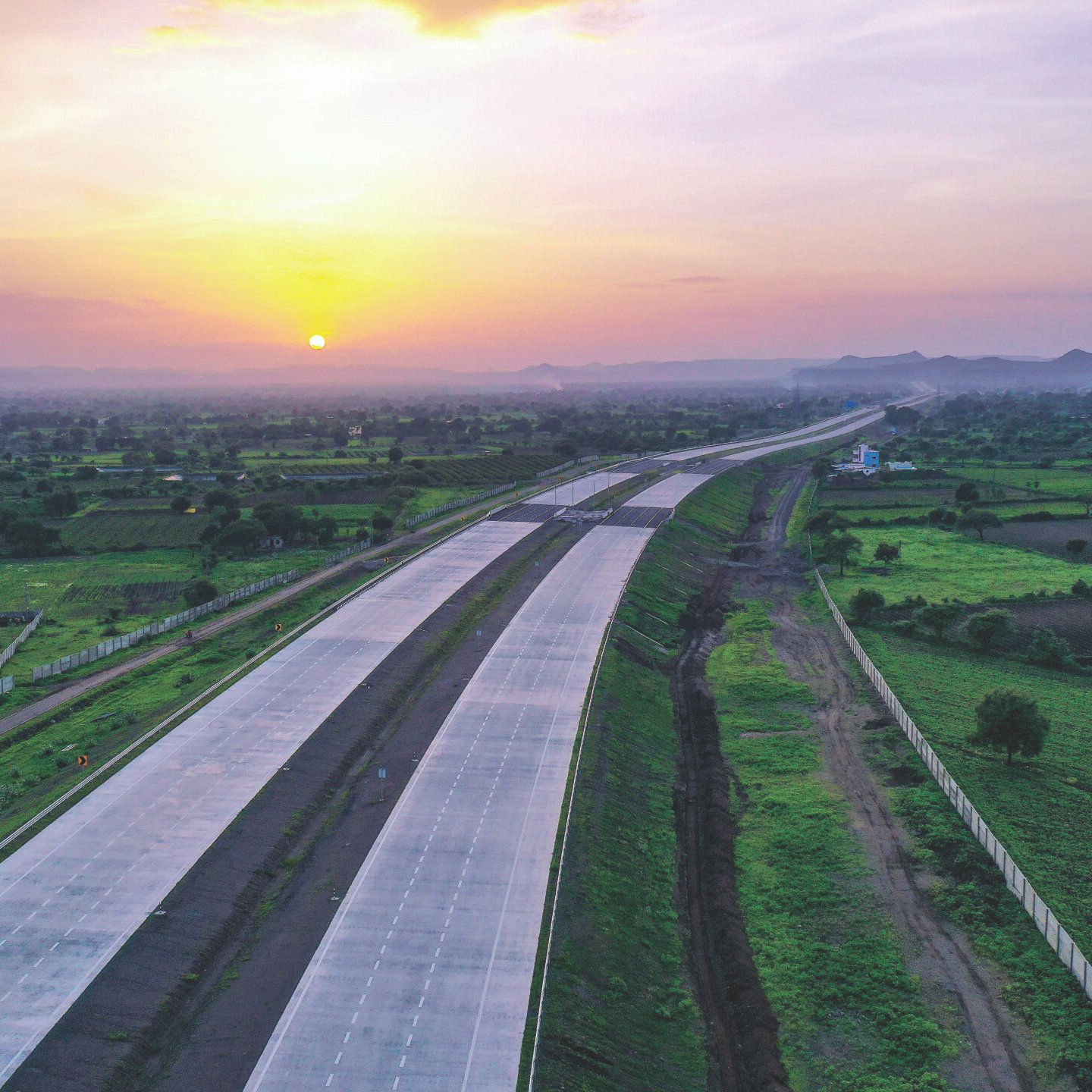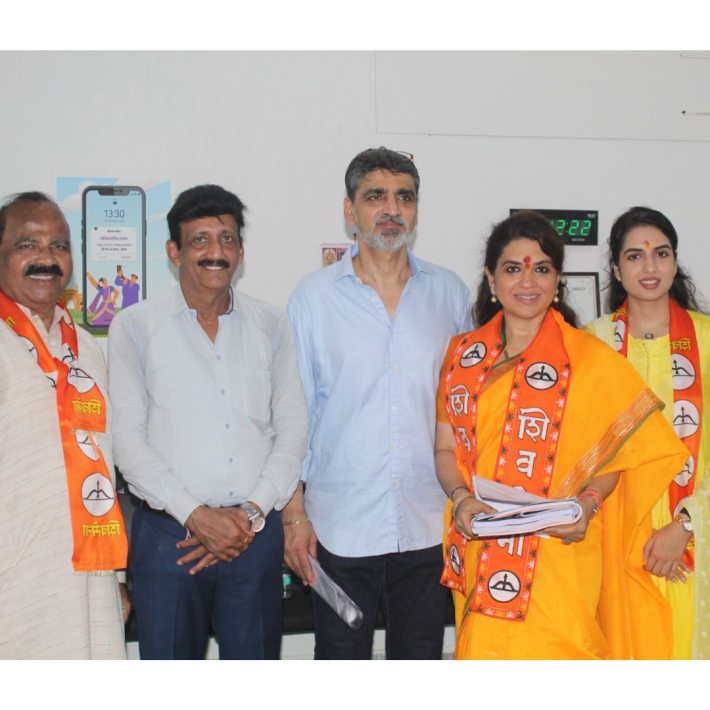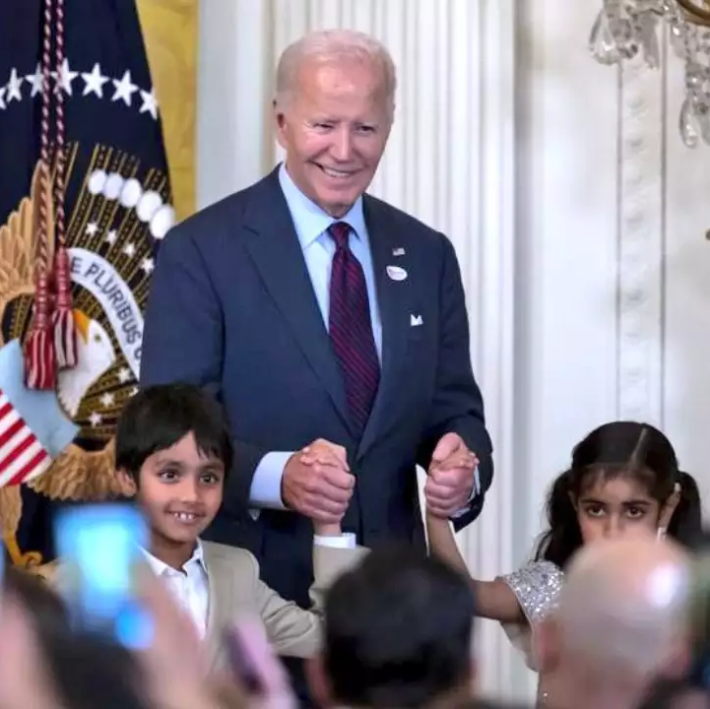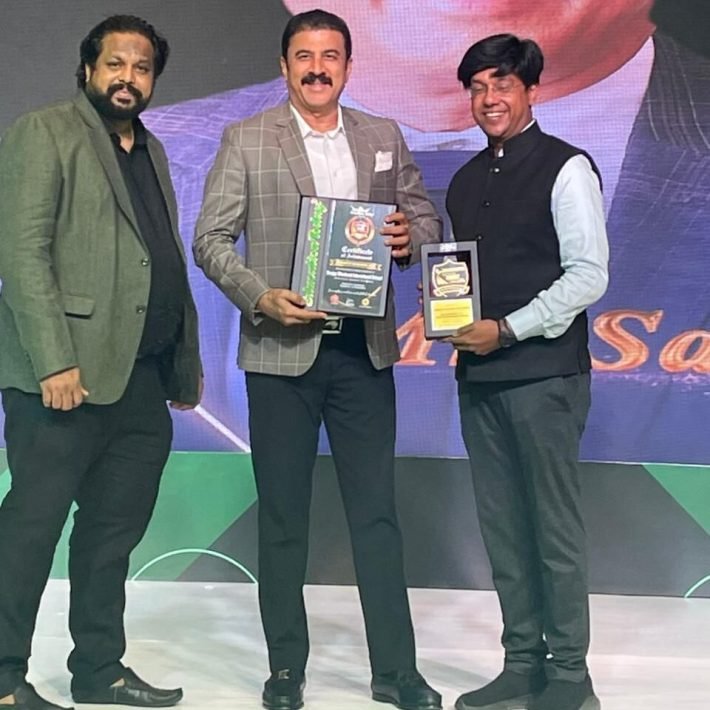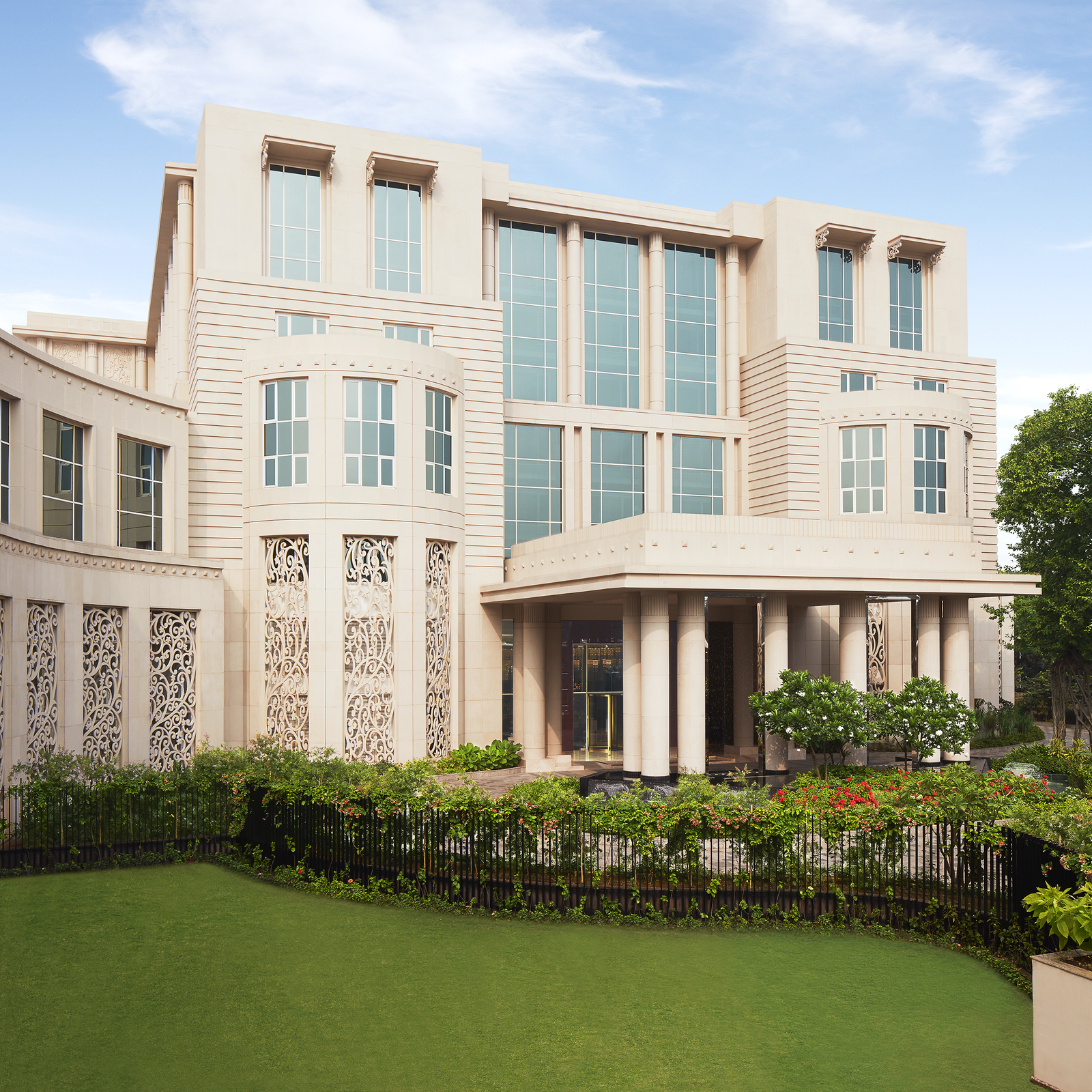Intertwining the state of Maharashtra has not been an easy task; however, the Maharashtra State Road Development Corporation (MSRDC) has been driving change with their ambitious projects. They are bringing innovation to the very landscape of Maharashtra and shaping the future of this state.
Maharashtra’s prominence as the third-largest state in India, coupled with its rich cultural heritage, renders it an immensely desirable region. Whether one seeks to establish a permanent residence here or simply explore its wonders, Maharashtra offers an abundance of opportunities. However, the sheer magnitude of this state presents a complex challenge in terms of organisation. The key to tackling this lies in meticulously planning a web of connectivity that seamlessly links its various regions. MSRDC
Amidst this overwhelming task, the Maharashtra State Road Development Corporation (MSRDC) has emerged as a pillar of efficiency and innovation. Through their tireless efforts, they have successfully managed to reconfigure vital routes, keeping in mind migration patterns, the city’s development, and revolutionizing the state’s infrastructure, which will significantly improve the lives of its citizens. This remarkable feat is a testament to their unwavering dedication and commitment to progress.
By strategically upgrading and expanding important roadways, the MSRDC has not only enhanced the state’s transportation system but also fostered economic growth and development. These improved routes will facilitate smoother travel, connecting previously isolated areas and unlocking the untapped potential of Maharashtra’s diverse landscapes.
The MSRDC, with its unwavering commitment to enhancing travel experiences, has meticulously crafted and maintained roads. And their dedication to ensuring safe and well-maintained roads has been commendable. The primary focus of MSRDC is to manage and oversee various properties and assets, both movable and immovable, including land, road projects, flyover projects, toll collection rights, and ongoing construction projects.
In its 27 years of existence, it has successfully built the mammoth Hindu Hrudaysamrat Balasaheb Thackeray Maharashtra Samruddhi Mahamarg, as well as, delivered many other state-of-the-art architectural wonders. From India’s first six-lane concrete, high-speed and access controlled expressway connecting Mumbai and Pune to the country’s first cable-stayed sea link bridge, the Corporation has been managing mega projects since its inception. Driven by a shared dream, the MSRDC aims to bring about a transformative change in Maharashtra. With their upcoming projects, they aspire to reshape the landscape and enhance the quality of life for their residents. These visionary plans not only captivate people’s attention but also instill a sense of optimism for the future of Maharashtra.
The blueprints crafted by the MSRDC are remarkable and encompass a wide range of initiatives that promise to revolutionize transportation, infrastructure, and connectivity within the state. From modernizing road networks to developing state-of-theart bridges, the MSRDC’s projects are poised to redefine Maharashtra’s infrastructural landscape.
Their zealous approach not only promises to improve the lives of Maharashtra’s residents but also attract investments, boost economic growth, and create employment opportunities. By transforming Maharashtra into a hub of innovation and development, the projects of the MSRDC have the potential to propel the state toward an unimaginably brighter future.
Paving The Way: Projects That Are Transforming The Way We Travel
Elevating Connectivity With The Hindu Hrudaysamrat Balasaheb Thackeray Maharashtra Samruddhi Mahamarg

The Nagpur Mumbai Super Communication Expressway, also known as the Hindu Hrudaysamrat Balasaheb Thackeray Maharashtra Samruddhi Mahamarg, is a remarkable 701 km long expressway. This impressive infrastructure cuts through 10 districts in the state of Maharashtra, connecting a total of 14 adjoining districts.
The Maharashtra Samruddhi Mahamarg stands as one of India’s largest Greenfield Access Controlled Expressways, boasting a splendid array of 1,901 structures. Among these structures are 73 flyovers and viaducts, 25 interchanges, and 7 tunnels. The longest tunnel on this expressway spans a remarkable 8 km in length. Additionally, there are 400 vehicular over/underpasses, over 300 major and minor bridges, 762 culverts, 200+ cattle/pedestrian underpasses, and 100 wildlife mitigation structures.
The Final Leg
The first phase of the Maharashtra Samruddhi Mahamarg, stretching from Nagpur to Shirdi, was inaugurated and opened to traffic by the Honorable Prime Minister Narendra Modi on December 11, 2022. Subsequently, the second phase, spanning from Shirdi to Bharvir, covering a distance of 80 km, commenced on May 26, 2023. As of now, a substantial portion of the Samruddhi Mahamarg, totaling 600 km out of the 701 km, is accessible to the public.
This expressway not only serves as a vital transportation link, but also symbolizes the state’s commitment to progress and economic growth. With its advanced infrastructure and strategic connectivity, the Hindu Hrudaysamrat Balasaheb Thackeray Maharashtra Samruddhi Mahamarg paves the way for a prosperous future for the state, propelling it towards the ambitious goal of a trillion dollar economy.
Journeying Along The Pristine Coastline: Revas-Reddi Coastal Highway [MSH-4]
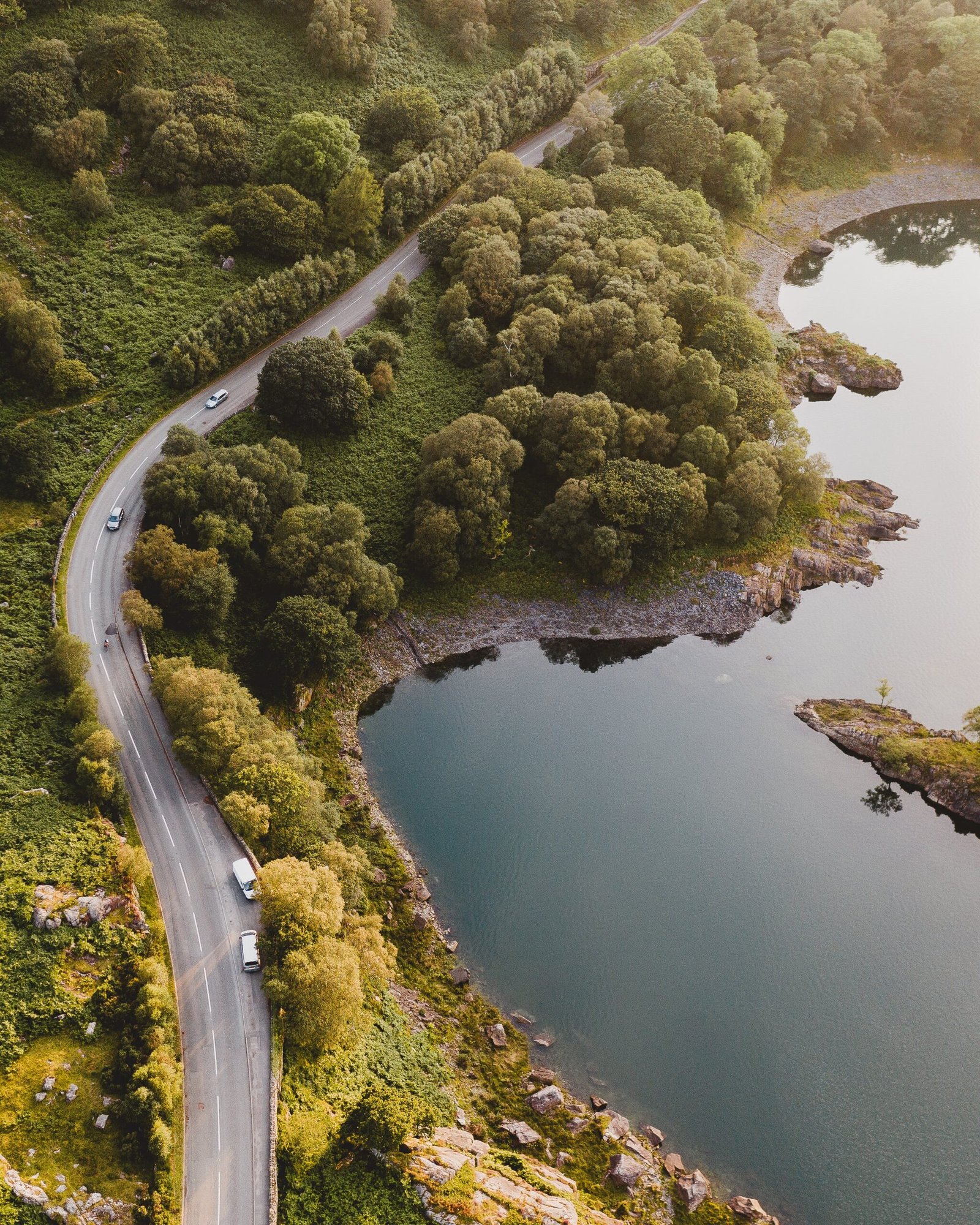
According to the Road Development Plan 1981-2001, the coastal highway MSH-4 stretches from Talasri to Patradevi. In a budget session held on March 8, 2020, the Deputy Chief Minister and Finance Minister of the state announced the development of this coastal highway with worldclass facilities, taking inspiration from the California Coastal Highway. The objective behind this initiative is to boost the economy of the Konkan region. The responsibility for this project has been entrusted to MSRDC.
Streamlining Approvals
To present their concept of developing coastal highways similar to the ones in California, MSRDC gave a presentation to the Honorable Chief Minister of the Government of Maharashtra on June 16, 2021. The focus of this presentation was on constructing missing creek bridges on a priority basis.
The Government approved the proposed alignment of the project on March 16, 2022, as per the Government Resolution. Currently, the preparation of the DPR is underway. The DPR includes plans for constructing missing creek bridges and improving the road to a 2-lane/4-lane divided carriageway with paved shoulders along the 256.880 km stretch from Revas to Jaigad. These plans have been submitted to the Government for approval. Additionally, the Government has already given its approval for the construction of the Revas-Karanja Bridge across Dharmtar Creek and the Kelshi Bridge.
Linking The West Coast: Versova-Bandra Sea Link Project (VBSL)
By assigning the MSRDC as the ‘Nodal Agency’, the Government of Maharashtra has entrusted them with the responsibility of executing the pivotal Versova-Bandra Sea Link Project (VBSL). This ambitious undertaking involves the construction of a 17.17 km sea link bridge along Mumbai’s West Coast, connecting Bandra on the Bandra Worli Sea Link to Versova at Nana Nani Park. To ensure seamless connectivity, intermediate connectors will be established at Otter’s Club and Juhu Koliwada
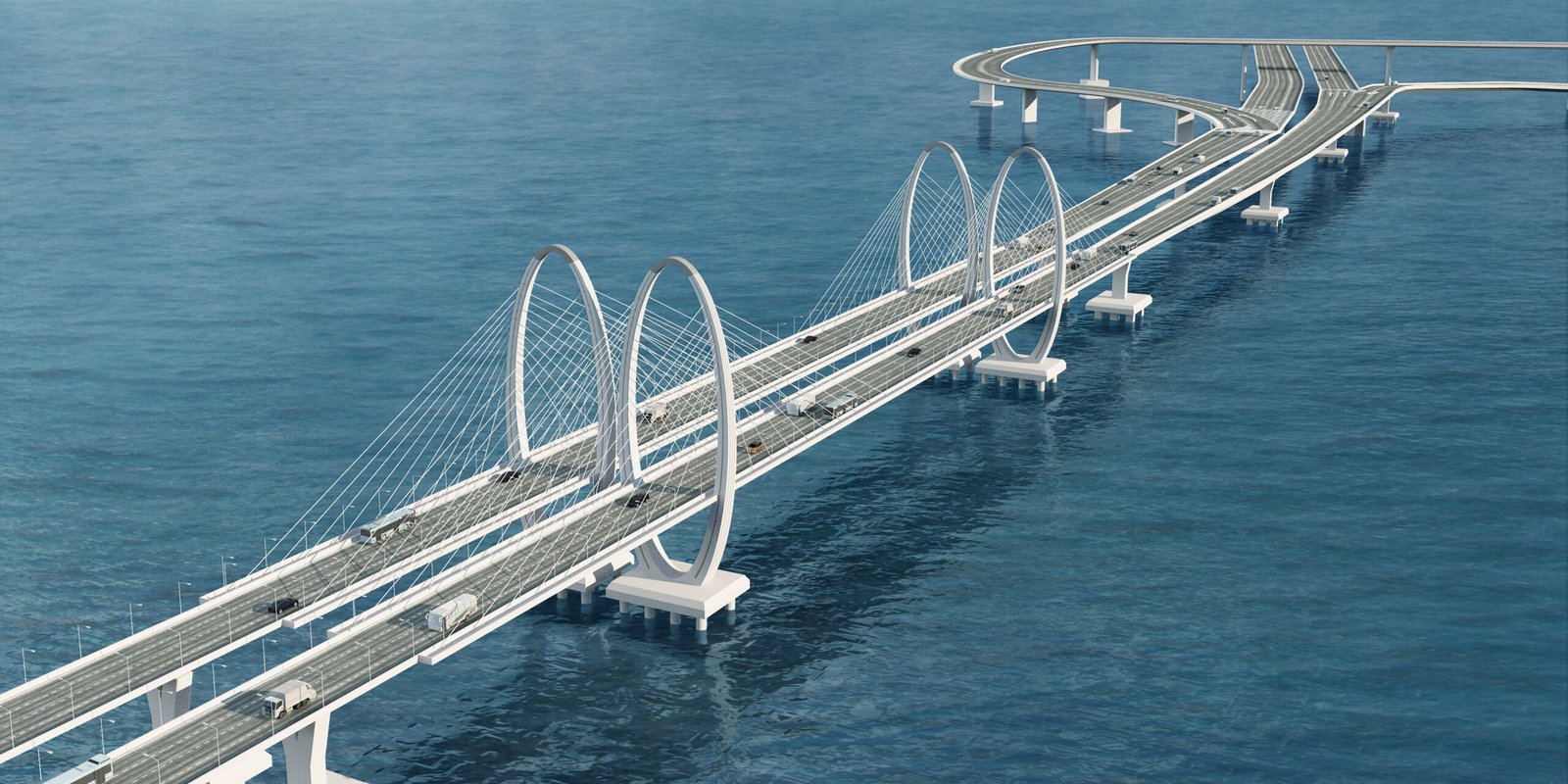
The primary aim of the Versova-Bandra Sea Link is to revolutionize transportation in Mumbai by improving connectivity and alleviating the city’s notorious traffic conditions. The MSRDC has taken up this monumental project on an Engineering, Procurement and Construction (EPC) basis, demonstrating their commitment to delivering a world-class infrastructure solution. Currently, the project is progressing steadily, with significant milestones achieved along the way.
Closing the Gap: Mumbai-Pune Expressway
The capacity augmentation project on the Mumbai-Pune Expressway, spanning 13.3 km, is currently in progress. This arduous endeavor involves the construction of an 8-lane Access-Controlled Expressway, stretching from Khopoli to Kusgaon. The primary objective of this project is to circumvent the Khandala Ghat, which currently serves as an overlapping link of NH4. To achieve this, the project incorporates the creation of viaducts, tunnels, and bridges.
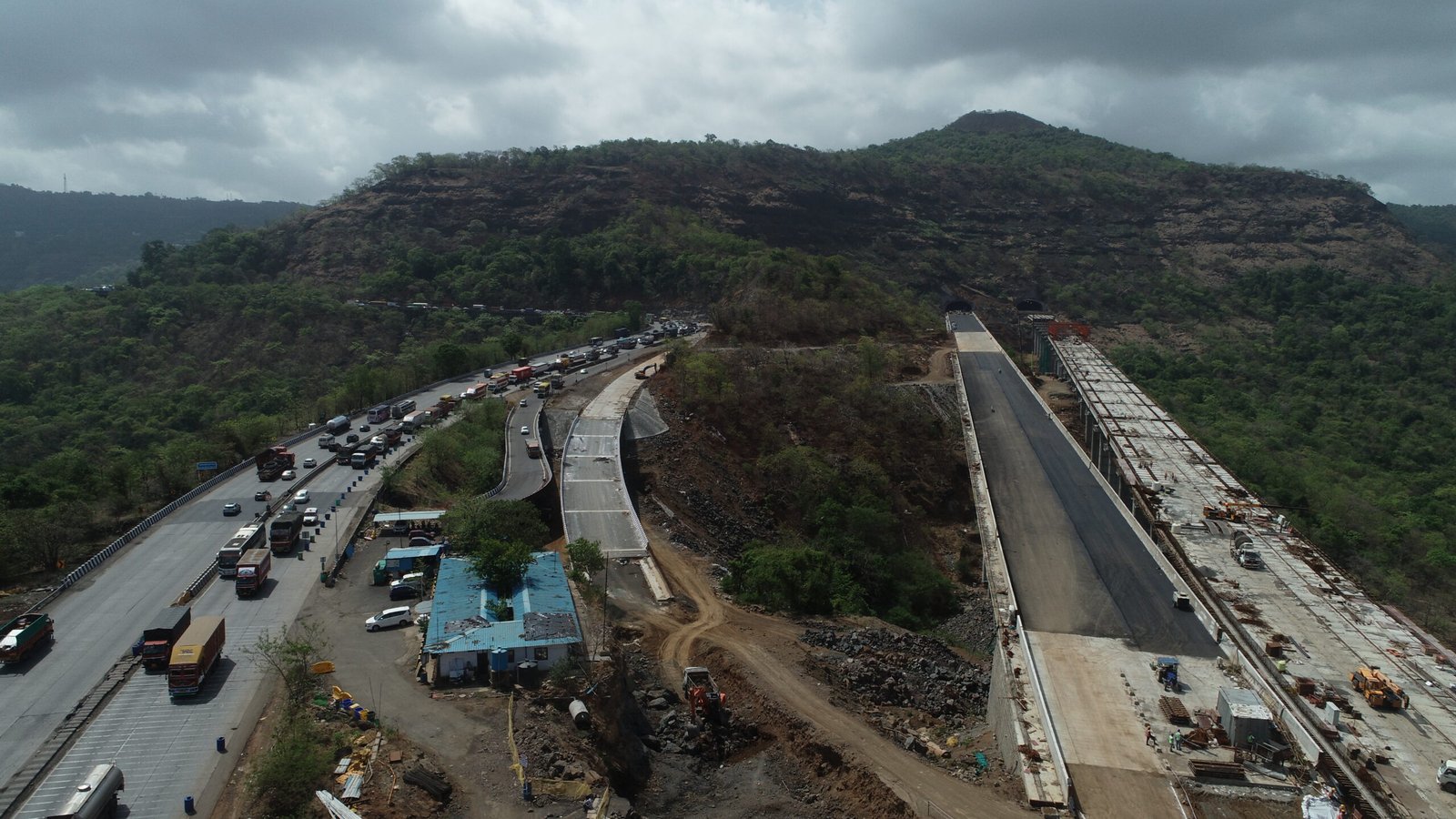
Once completed, this transformative link will not only reduce travel distance by an impressive 6 km, but also slash travel time by a remarkable 25 minutes. Moreover, the project will introduce improved gradients, further enhancing the overall travel experience.
The Missing Link
After bypassing the Khandala Ghat, this project aims to alleviate congestion and enhance the efficiency of the Mumbai-Pune Expressway. The inclusion of viaducts, tunnels and bridges showcases the meticulous planning and engineering prowess behind this endeavour.
The reduction in travel distance and time will undoubtedly benefit commuters, making their journeys more convenient and timeefficient. Additionally, the improved gradients will contribute to a smoother and safer driving experience.
National Highway Facelift
The Ministry of Road Transport and Highways has recently announced the establishment of several new national highways, as well as the rehabilitation and upgrading of existing state highways. In order to carry out these projects, the ministry has entrusted the MSRDC with 40 packages, spanning a total length of 1,725 km and amounting to a budget of ₹10,200 crores.
Remarkably, the MSRDC has already accomplished an impressive 95.36% of the assigned work, covering a distance of 1,644.91 km and utilizing ₹7,951 crores. The remaining tasks are scheduled to be completed by the end of February 2024.
Bridging Communities: Thane Creek Bridge III
Mumbai, the capital of Maharashtra state and the financial hub of India, has experienced rapid development in the past 15-20 years. This growth has resulted in a significant increase in traffic intensity in both Mumbai and Navi Mumbai. To address this issue, the P.W. Department constructed the second Thane Creek Bridge-II (TCB-II), which was opened in November 1994.
However, with the continuous rise in traffic, the existing six-lane Thane Creek Bridge-II (TCB-II) has become a bottleneck. To alleviate this congestion, the P.W. Department has completed the widening and improvement of the Sion-Panvel Highway to 10 lanes on each side. Additionally, a new bridge, Thane Creek Bridge-III, is planned
Scope For The Future
Mumbai’s status as a financial capital and its rapid development has necessitated these infrastructure improvements. By expanding the Sion-Panvel Highway and constructing additional bridges, the aim is to enhance the city’s transportation network and alleviate the traffic congestion that has become a pressing issue. These initiatives will not only improve the flow of traffic between Mumbai and Navi Mumbai, but also contribute to the overall development and efficiency of the region’s transportation system.
Architectural Splendour: GST Bhavan
Construction of a 19-story building, spanning a plinth area of 298,363 square meters, is underway at Wadala for the Finance Department, as the GST Bhavan is currently being constructed by MSRDC.
The building will serve various purposes, including:

1. Housing the offices of the Goods and Services Tax (GST) department.
2. Accommodating the offices of different departments for the Government of Maharashtra.
3. Providing residential flats for higher-ranking officers, specifically those belonging to the Indian Administrative Service (IAS) of the Government of Maharashtra.
This ambitious project aims to create a modern and functional space that caters to the needs of the Government and its officials. The construction of this building signifies the Government’s commitment to providing state-of-the-art facilities for its departments and personnel.
Enhancing Accessibility: Virar-Alibaug Multi-Modal Corridor
The Virar-Alibaug MultiModal Corridor is a significant infrastructure project spanning 98.5 kilometers. It passes through various towns and cities. The right-of-way for this corridor varies between 45 m, 69.5 m, 99 m, and 126 m. It consists of either 4+4 lanes or 6+6 lanes access control expressway, with a median width of 26.5 m for future expansion and the inclusion of a metro system.
Primed For Growth
This Multi-Modal Corridor is a crucial step towards the development and strengthening of seven growth centers in the Mumbai Metropolitan Region (MMR). These centers are proposed at Virar, Bhiwandi, Kalyan, Dombivali, Panvel, Taloja and Uran. The corridor will serve as a vital link to the proposed Navi Mumbai International Airport, JNPT Port, Mumbai Trans Harbour Link (MTHL), and Dedicated Freight Corridor. By diverting traffic from JNPT towards Navi Mumbai and Thane, the corridor will help alleviate congestion within the city. Additionally, it is expected to reduce travel time between Virar and Alibaug by 50%.

This corridor holds immense significance for economically driven cities within Maharashtra and India. The project stretch encompasses various key locations such as Virar, Kalyan, Bhiwandi, Shedung, Taloja MIDC, Panvel, Navi Mumbai Airport Influence Notified Area (NAINA) – Development Plans, Proposed Logistic Hub, JNPT, Proposed Development Plan at Khopta and Pen among others.
A Smooth Ride Ahead: Jalna-Nanded Expressway
The expressway connector from Jalna to Nanded, connecting to the Hindu Hrudaysamrat Balasaheb Thackeray Maharashtra Samruddhi Mahamarg, is a Greenfield expressway. It begins at km 352/500 of Samruddhi Mahamarg near Jalna and ends on the Nanded-Degloor National Highway No. 161. This proposed expressway will pass through the districts of Jalna, Parbhani and Nanded, covering a distance of 179.85 km.
The proposed expressway will have a 100 m right-of-way, which will include a 3+3 lane main carriageway. Additionally, a 20 m ROW will be reserved for the Bullet Train. The expressway will traverse through 87 villages and will feature 29 flyovers, 8 interchanges, 177 vehicular and cattle over/underpasses, 65 major and minor bridges, 84 culverts, 1 aqueduct, and 2 railway overbridges.
Empowering Progress
The expressway will not only benefit the local population, but also facilitate the movement of goods and services, boosting trade and commerce. The inclusion of a reserved ROW for the Bullet Train showcases the forwardthinking approach of this project. It demonstrates the commitment to modern transportation infrastructure and the integration of different modes of travel.
Soulful Express: Maharashtra Shaktipeeth Expressway
In order to establish a connection between the heritage sites and pilgrimage destinations of the state, as well as to stimulate the economy of underdeveloped regions, the Government of Maharashtra has devised a plan to link Pavnar in District Wardha to Patradevi in Sindhudurg District, extending all the way to the Goa Border via the Nagpur-Goa Expressway. This proposed expressway is anticipated to span a length of 760 km, traversing through 12 districts within the state.
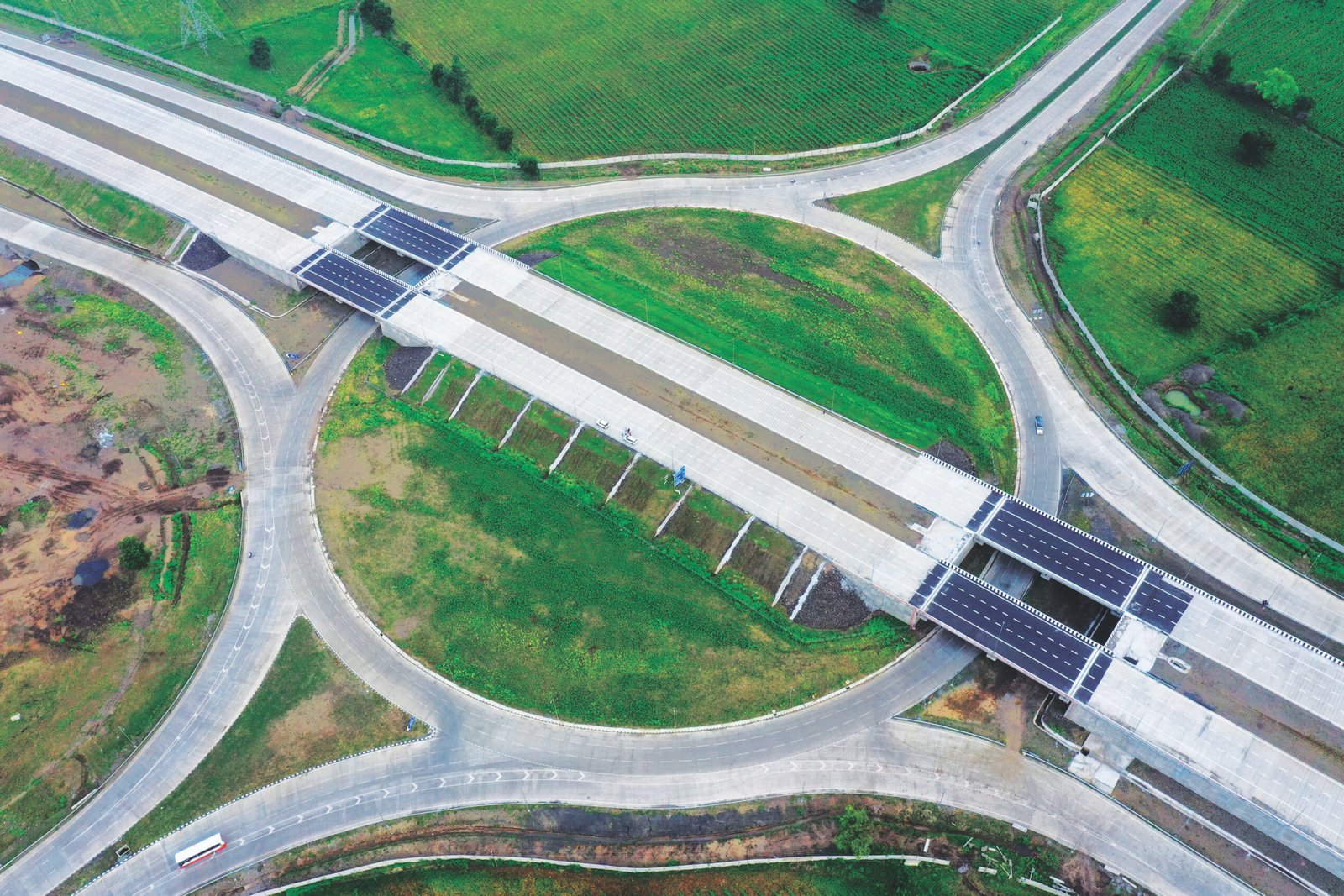
The primary objective of this project is to establish a seamless connection between various pilgrimage sites and sacred religious locations. These include Sewagram, Nanded, Mahur, Aundha Nagnath, Parli Vajinath, Ambejogai, Tuljapur, Akkalkot, Pandharpur, Audumbar, Narasobachi Wadi, Kolhapur, Adampur and Kunkeshwar. Notably, this expressway will serve as a link between three shaktipeeths located in Mahur, Tuljapur and Kolhapur. Consequently, the expressway has been aptly named the ‘Maharashtra Shaktipeeth Expressway’.
Unlocking Opportunities: Pune-Nashik Industrial Corridor
The city of Pune has emerged as a major IT and education hub, housing not only small-scale industries but also serving as the cultural capital of the state. On the other hand, Nashik has become a prominent location for agricultural products, small industries, and tourist/pilgrimage sites.
To enhance connectivity between Pune and Nashik, the MSRDC has devised a plan to establish the Pune-Nashik Industrial Corridor. This proposed industrial corridor will pass through various towns, including Rajgurunagar, Chakan, Manchar, Narayangaon, Alephata, Ghargaon, Sangamner, and Sinnar. The corridor aims to connect the two cities through the shortest possible route.
The estimated distance to be covered by the proposed expressway is 180 km, and it is expected to reduce travel time to just 2.5 hours. MSRDC has taken on the responsibility of preparing the Detailed Project Report (DPR), with a projected completion time of 12 months. Once completed, this expressway will form a triangle of connectivity between Mumbai, Pune and Nashik, providing a seamless transportation network for these major cities.
Bridging Distances: Nagpur-Gondia-Gadchiroli [Eastern Express Corridor]
The MSRDC is devoted to connecting remote and central areas of the state through major links, with the aim of promoting the development of underdeveloped regions. The Honourable Deputy Chief Minister of the Government of Maharashtra has announced plans to establish connections between the Nagpur-Gondia, and Gadchiroli districts. These new links will serve as extensions to the existing Maharashtra Samruddhi Mahamarg, which will connect Gondia and Gadchiroli to Mumbai.
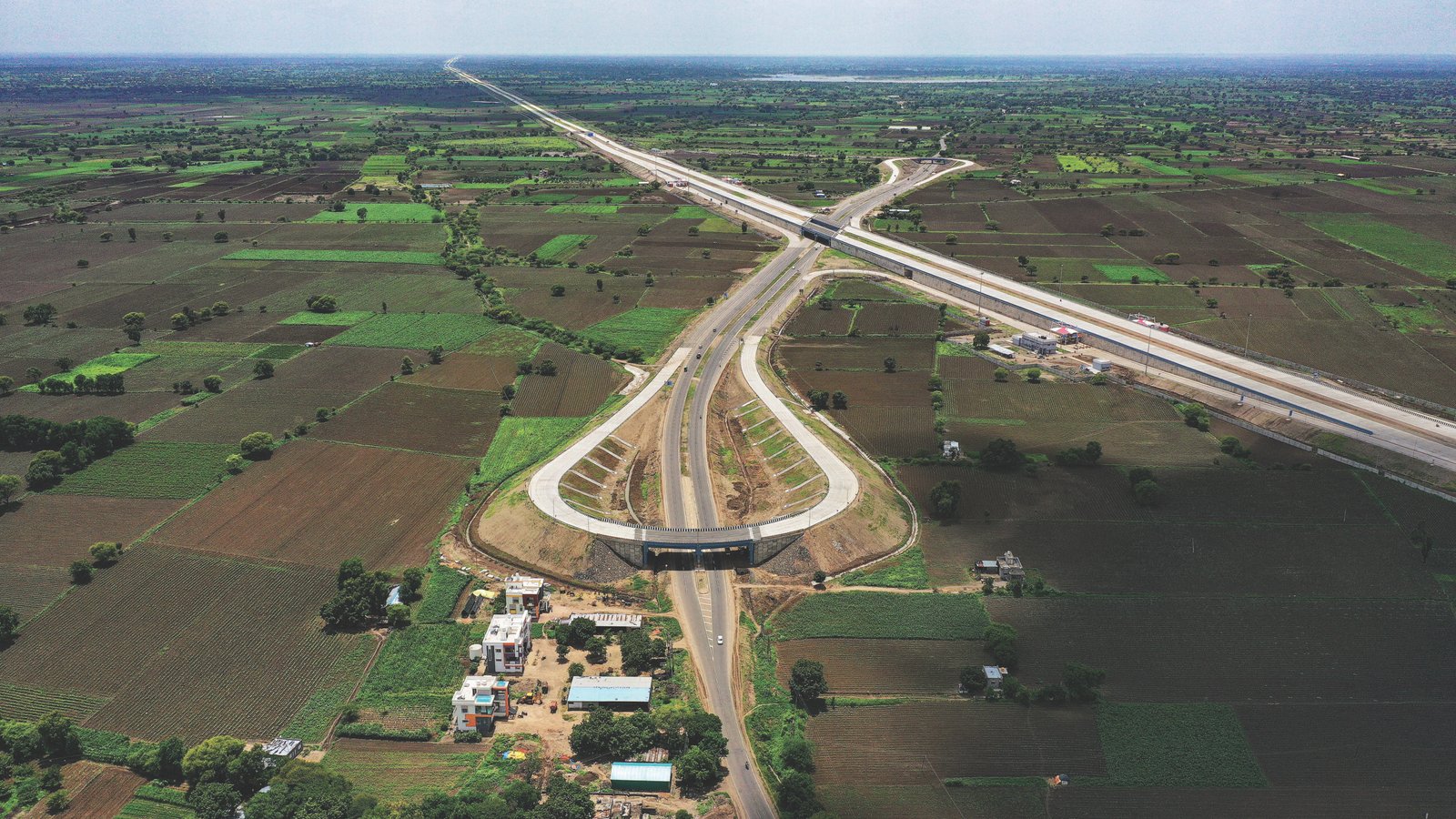
Furthermore, there are proposals to connect Chandrapur with these expressways, which would provide direct connectivity to the mines, coal fields, and other industries located in the towns of Ghuggus, Rajura, and Surjagad. This connectivity would not only benefit these industries, but also facilitate easier access to other states and within the state itself. The connectivity will help promote employment for locals of remote places, leading to overall development of the area. MSRDC has taken on the responsibility of preparing the Detailed Project Report (DPR).
From Hurdles To Highways: Greenfield Konkan Expressway
The Honorable Deputy Chief Minister and Finance Minister of Maharashtra, during the Budget Session 2020 on March 14, 2020, announced the initiation of the Konkan Expressway project for the overall development of the Konkan region.
Currently, the Konkan region relies on the existing NH-66, Revas-Reddi MSH-4, and Konkan Railway for north-south connectivity. However, these modes of transportation suffer from issues such as long travel time, limited speed, and safety concerns.
Breaking Ground
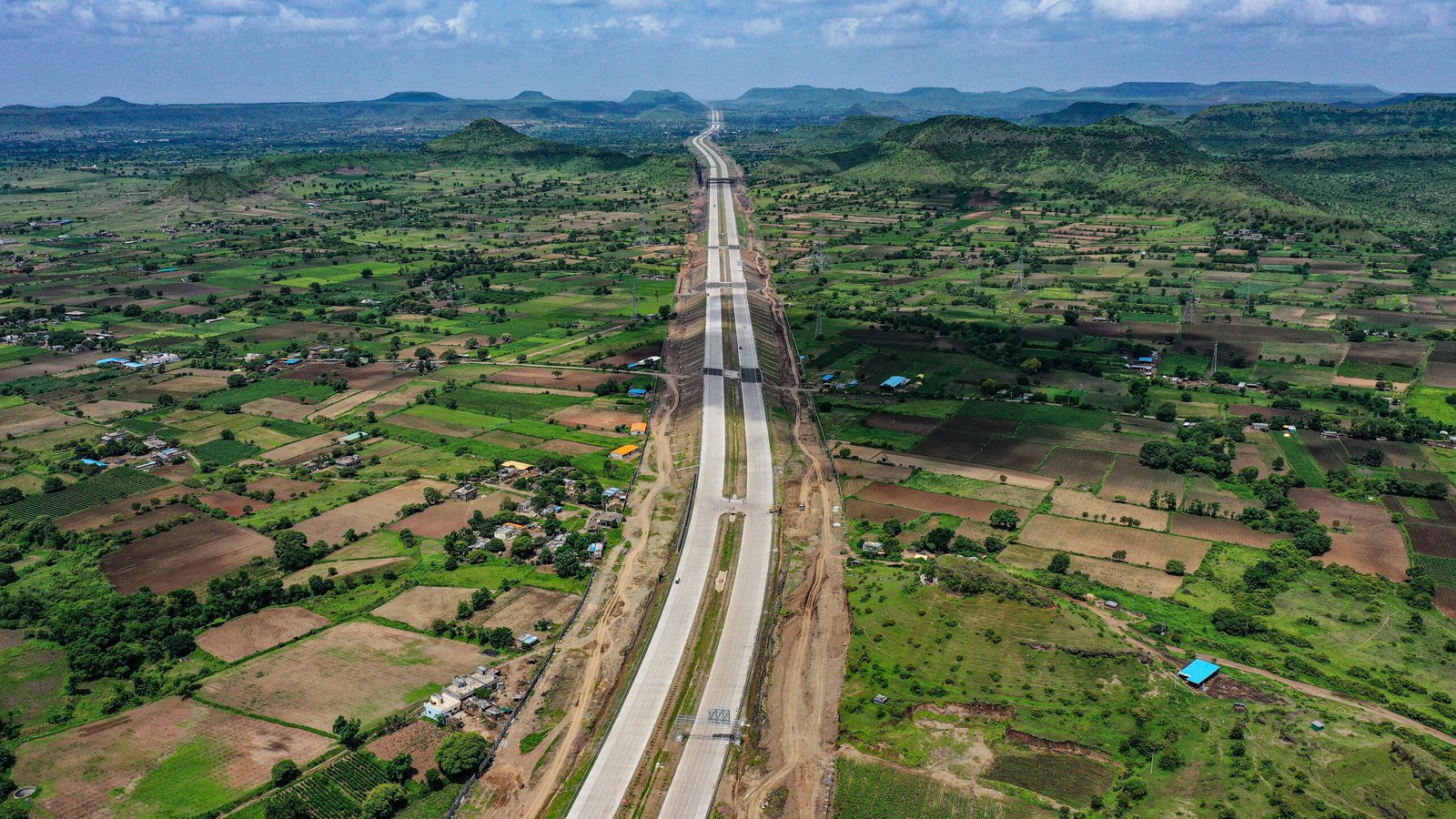
The Greenfield Konkan Expressway project will be divided into four packages and will have a total length of 388.44 km. The project will require approximately 4205.20 Ha of land. The proposed alignment of the KEW project passes through three Districts, 18 Talukas, and 249 Villages. The estimated cost of the project, including Land Acquisition, is ₹68919.99 crore. MSRDC has taken up the responsibility of preparing the Detailed Project Report (DPR).
By improving connectivity and addressing the existing transportation challenges, the Konkan Expressway project aims to contribute to the overall development of the Konkan region.
Connecting The Dots: Pune Ring Road
The Pune Ring Road, spanning a distance of 136.80 km, is an upcoming a c c e s s – c o n t r o l l e d expressway designed by MSRDC. This expressway boasts a circular route alignment encircling Pune city, promising enhanced connectivity and convenience for commuters. With a maximum speed limit of 120 km per hour, it will seamlessly link the talukas of Khed, Haveli, Purandar, Bhor, Mulshi, Maval and more.
The primary objective of this expressway is to alleviate traffic congestion and provide improved accessibility to the residents. To achieve this, the road will feature three lanes on each side, ensuring a smooth flow of vehicles. Additionally, it will incorporate a total of 14 interchanges, 10 tunnels, 28 viaducts, 8 major bridges, 3 railway overbridges, and 92 VOP/VUP structures.
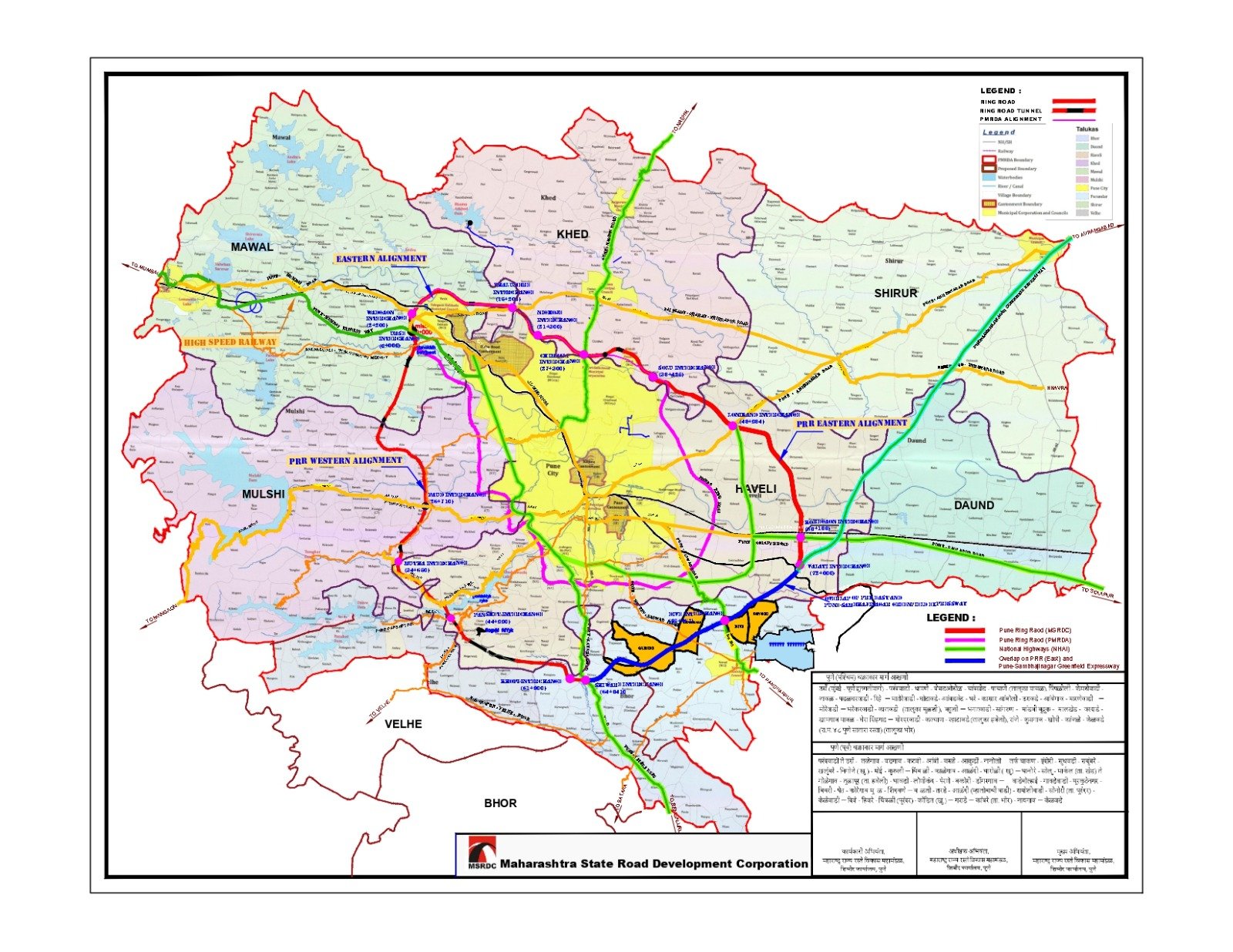
By implementing this stateof-the-art infrastructure, the Pune Ring Road aims to revolutionize transportation in the region. With its advanced design and strategic placement, this expressway is set to become a vital lifeline for the city, connecting various talukas and facilitating seamless travel for both residents and visitors alike.
Bridges Of Progress
The Maharashtra State Road Development Corporation (MSRDC) has demonstrated immense potential in their future endeavors. Each project has been meticulously planned, taking into consideration the needs of both citizens and the state. As a result, the state of Maharashtra is poised to become an even bigger thriving hub of success, bolstering its economy and benefiting its people. Moreover, the MSRDC’s upcoming projects will not only enhance the visual landscape, but also transform the region into a more modern and accessible area.
